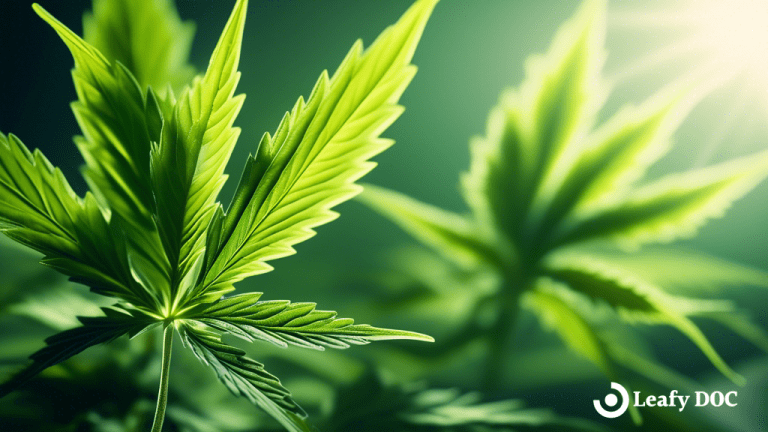Huntington’s Disease
Can medical marijuana help people with symptoms of Huntington’s Disease? Find out more below.
What is Huntington’s Disease?
Huntington’s disease, also known as Huntington disease or HD, is a hereditary neurodegenerative disorder that affects the brain’s nerve cells. The disease is caused by a mutation in the huntingtin gene, which produces a protein essential for brain development and function. The mutation results in an abnormal form of the protein, which gradually accumulates in the brain cells and causes damage over time. HD typically develops in adulthood, usually between the ages of 30 and 50, and progresses slowly throughout 10 to 25 years.
How and Why do People Get it?
Here are some possible causes of Huntington’s Disease:
- Genetic mutations: Huntington’s Disease is caused by a mutation in the HTT gene, which provides instructions for making a protein called huntingtin. This mutation produces an abnormal form of huntingtin, which accumulates in cells and causes damage over time.
- Inheritance: Huntington’s Disease is inherited in an autosomal dominant pattern, which means that a person only needs to inherit one copy of the mutated gene from one parent to develop the disease.
- CAG repeat expansion: The HTT gene mutation is characterized by an accumulation of CAG trinucleotide repeats. The more CAG repeats a person has, the earlier Huntington’s disease onset and the more severe the symptoms.
- Age: Huntington’s Disease typically develops in adulthood, with most people experiencing symptoms between 30 and 50. However, it can also affect children and older adults in rare cases.
- Gender: Some evidence suggests that men may be more likely to develop Huntington’s Disease than women.
- Environmental factors: While the exact role of ecological factors in the development of Huntington’s Disease is unclear, some studies have suggested that certain toxins or infections may increase the risk of developing the disease or accelerate its progression.
It’s important to note that while we know a lot about Huntington’s disease’s genetic basis, much still needs to be fully understood about its causes and mechanisms.
What are the symptoms?
The symptoms of Huntington’s disease can vary widely but typically include a combination of motor, cognitive, and psychiatric symptoms. Motor symptoms may include involuntary movements, such as jerking or twitching, and difficulties with coordination and balance. Cognitive symptoms may include memory loss, difficulty with decision-making and problem-solving, and reduced mental flexibility. Psychiatric symptoms may include depression, anxiety, irritability, and mood swings.
Diagnosis & Treatment
There is currently no cure for Huntington’s disease, and treatment focuses on managing symptoms and improving quality of life. Medications may be used to manage psychiatric symptoms, while physical and occupational therapy can help with mobility and daily activities. Genetic testing and counseling are also available for individuals and families affected by HD, as the disease is inherited in an autosomal dominant pattern.
The Connection Between Parkinson’s and Huntington’s Disease
There is a connection between Huntington’s Disease and Parkinson’s Disease, although the two conditions are distinct and have different underlying causes.
Both Huntington’s Disease and Parkinson’s Disease are neurodegenerative disorders that affect movement and cognition. However, Huntington’s Disease is caused by a mutation in the HTT gene, leading to abnormal protein accumulation in the brain. In contrast, Parkinson’s Disease is caused by the degeneration of dopamine-producing neurons in the brain.
Some evidence suggests that the two conditions may share common pathways in the brain. For example, both Huntington’s Disease and Parkinson’s Disease involve dysfunction in the basal ganglia, a group of structures in the brain that are involved in motor control. Additionally, both conditions can cause mood, behavior, and cognition changes.
Some studies have also found that individuals with Huntington’s Disease may have an increased risk of developing Parkinson’s, and vice versa. However, the exact relationship between the two conditions is not yet fully understood, and more research is needed to clarify the nature of this connection.
Can medical cannabis help?
Huntington’s Disease is a complex condition that affects many different systems in the body, and there is still much that is not fully understood about how medical cannabis might be able to help treat its symptoms. However, here are some of the ways that medical cannabis has been suggested to benefit patients with Huntington’s Disease potentially:
- Neuroprotective effects: Some studies have suggested that cannabinoids, the active compounds in cannabis, may have neuroprotective effects, meaning that they may be able to protect the brain from damage and slow the progression of neurodegenerative diseases like Huntington’s Disease.
- Relief of motor symptoms: Medical cannabis effectively reduces muscle spasms, tremors, and other motor symptoms associated with Huntington’s Disease, possibly by interacting with the endocannabinoid system, which plays a role in motor control.
- Pain relief: Patients with Huntington’s Disease may experience pain as a result of muscle spasms, joint stiffness, or other factors, and medical cannabis is effective in reducing pain in a variety of conditions.
- Improvement of mood and behavior: Huntington’s Disease can cause changes in mood, behavior, and cognition, and medical cannabis has been shown to have mood-stabilizing and anxiolytic effects, meaning that it may be able to help alleviate some of these symptoms.
- Appetite stimulation: Patients with Huntington’s Disease may experience weight loss and difficulty eating due to dysphagia or difficulty swallowing. Medical cannabis has been shown to stimulate appetite and may be able to help patients with Huntington’s Disease maintain a healthy weight.
It’s important to note that while medical cannabis shows promise as a potential treatment for Huntington’s Disease, more research is needed to fully understand its effects and potential benefits. Additionally, medical cannabis should only be used under the guidance of a healthcare professional and in compliance with local laws and regulations.
Last Updated: June 14, 2024
Get Your Medical Card
Connect with a licensed physician online in minutes
Table of Contents
Keep Reading
-
Reducing Inflammation With Terpenes In Cannabis
Discover how cannabis terpenes can naturally reduce inflammation and improve your health. Click now to learn more about the healing benefits of terpenes!
-
Find a Qualified PA Medical Marijuana Doctor Near You
Get connected with a qualified medical marijuana doctor in PA. Learn what to expect during an appointment and how to get started. Book now!
-
Does Smoking Weed Make You Dehydrated
Find out the truth about smoking weed and dehydration. Don’t miss this eye-opening article that reveals the surprising link between cannabis and dehydration. Click here to quench your curiosity!



